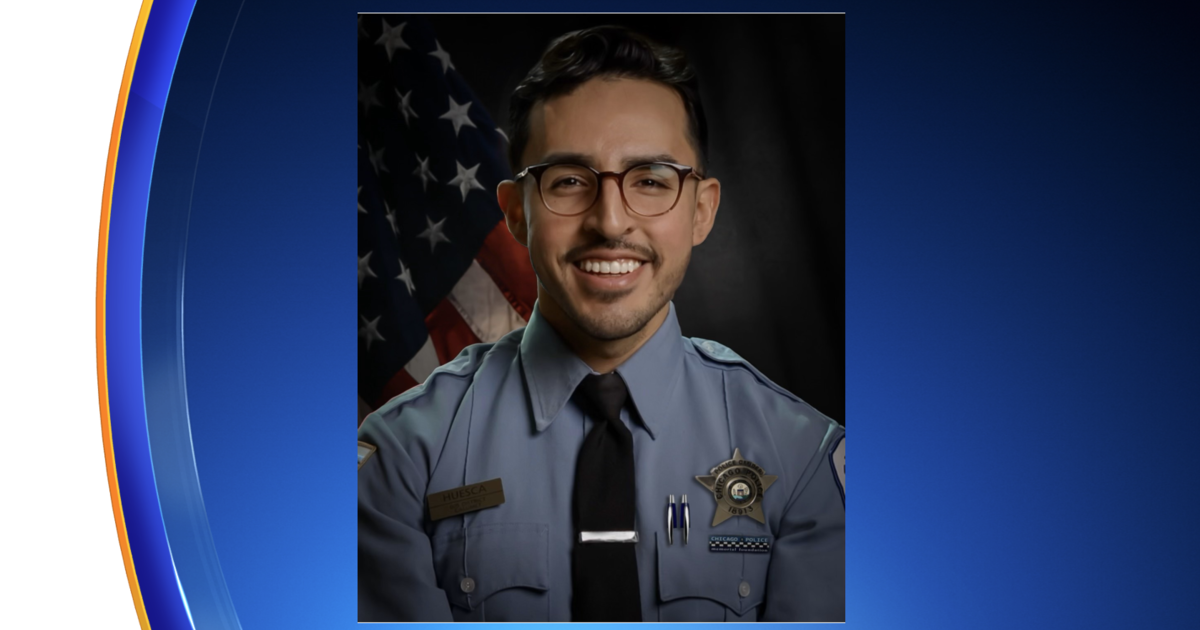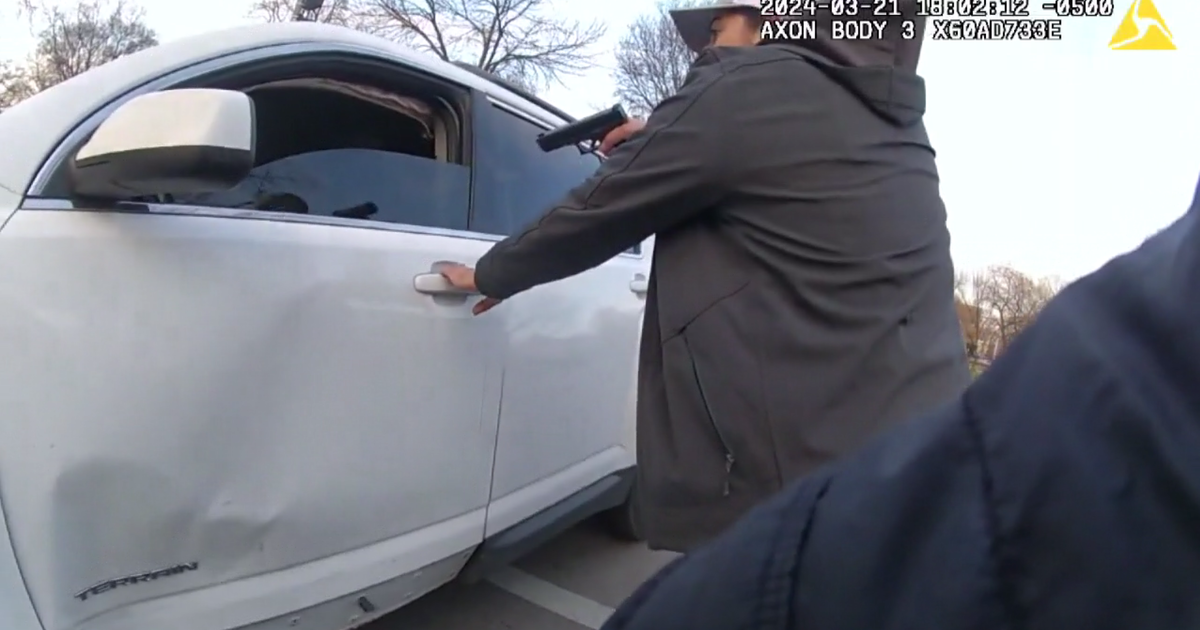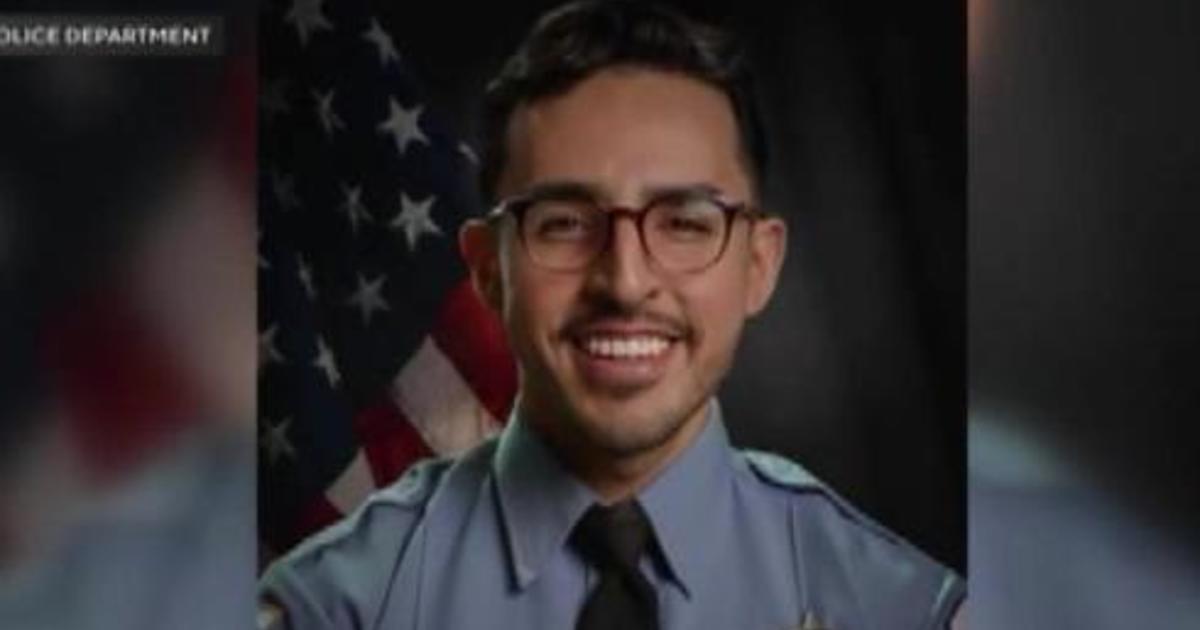Lawsuit: Chicago Police Lieutenant Says Community Safety Team Pushes 'Illegal' Arrest Quotas, Retaliated Against Him for Speaking Out
By Samah Assad, Dave Savini, and Megan Hickey
CHICAGO (CBS) — A Chicago Police lieutenant sued the city Tuesday, alleging he blew the whistle on "illegal policing" and was re-assigned after refusing to comply with arrest and traffic stop quotas forced on the newly created Community Safety Team (CST).
Franklin Paz, Jr., 48, was assigned to supervise dozens of officers and sergeants, referred to in at least one email as a "platoon," on the special team formed by Supt. David Brown.
Brown created the CST in the summer of 2020 to specifically focus on reducing violent crimes and improving relationships in the community.
But in Paz's whistleblower lawsuit, he said the team is doing the opposite with a practice of quota-based policing during investigatory stops of civilians.
The lawsuit claimed Paz's direct supervisor and the head of the team, Deputy Chief Michael Barz, urged him and the other lieutenants to increase the number of traffic stops, arrests and citations during their shifts, without justification.
"The use of numbers and statistics, particularly traffic stops, became the primary basis that Barz used to evaluate the work that the officers under his command were doing," the lawsuit said.
The lawsuit said Barz "expected" officers assigned to the new team to "generate specific amounts of police activity per shift they worked." There are more than 1,000 officers assigned to the CST, city records show.
[scribd id=491271193 key=key-cr0pmqP1Uk91v7m9ljVj mode=scroll]
Barz also "demanded certain numbers relating to police activity, regardless of the criminal or traffic activity justifying police intervention," according to the lawsuit.
"In other words," the lawsuit said, "regardless of the criminal activity occurring that day, his officers were required to make the same number of stops."
"The bottom line is this sort of number driven policing ... ends up actually eroding the relationship between the Community and the police," Paz's attorney, Torri Hamilton told CBS 2 Investigator Megan Hickey. "And here we have 1,000 police officers that are being ordered to do it."
Because police quotas are illegal in Illinois, Paz believed Barz was pressuring officers to "engage in illegal activity" that could lead to the profiling of residents. State statute says a police agency cannot require an officer issue a specific number of citations within a certain period of time.
"By demanding a certain number of stops without regard to the criminal activity justifying those stops, Barz was effectively requiring officers to engage in unlawful profiling, seizures of people that were not justified by probable cause, and violations of the civil rights of persons they encountered," the lawsuit said.
Specifically, Barz criticized Paz and instructed his officers bring in "a minimum of 10 blue cards per day," the lawsuit said. A blue card is a document created by officers when they detain a civilian, but do not make a formal arrest or issue a citation, such as an investigatory stop.
In an investigative report last year, CBS 2 analyzed CPD's own data showing every investigative stop in a two-year period and found officers stopped Black or Latino residents 90 percent of the time.
Paz said he attempted to share his concerns with Barz about this type of policing and emphasized the importance of community policing instead.
In response, the lawsuit alleged, Barz said, "F*** community policing, I need activity", and on another occasion, threatened to "blow up the entire platoon" and "dump" everyone from the unit if they did not comply.
The lawsuit also claimed Barz made disparaging comments toward Paz and previous Black supervisors.
Paz, who is Latino, grew up in the Little Village and Lawndale communities. There, he said he witnessed biased policing firsthand.
The lawsuit said Paz became a police officer in 1999 to serve communities "in an unbiased manner that respects the rights of the citizens he serves." Paz was promoted to sergeant in 2012 and to lieutenant in 2020.
The lawsuit described Paz as a decorated officer who, due to concerns with Barz's demands, raised the issue with other CPD supervisors. That's when the retaliation began, the lawsuit said.
In an email obtained by CBS 2, Paz wrote to Barz on Sept. 25, 2020, again expressing his concerns about the demands. He also cited the federal mandated consent decree, which found CPD engages in a pattern and practice of excessive force against communities of color.
"I can not in good faith and will not mandate Officers to bring in 'x' amount of numbers and activity," Paz wrote. "This is the exact reason we are in a consent decree as we speak."
In an emailed response that same day, Barz replied, in part, "This email is a gross misrepresentation of the conversation and expectations I have with you and the Community Safety Teams."
A week later, Paz learned he had been removed from his position as lieutenant and re-assigned to patrol, without explanation. Paz then filed a complaint with the Chicago Inspector General. The lawsuit said because Paz "refused to participate in the illegal policing tactics" and disclosed the issues to other supervisors, the re-assignment was a form of retaliation.
"Instead of protecting and shielding whistleblowers from retaliation," the lawsuit said, "the City of Chicago allows its police department to formally retaliate against whistleblowers by 'dumping' them to unfavorable assignments."
The lawsuit said the situation "forced" Paz into the position of a whistleblower, causing him "extreme humiliation, embarrassment, anxiety and stress." Paz was hospitalized as a result.
"Despite the professional and personal stresses and challenges to come forth, today I am doing what is right and what is necessary to highlight an illegal policing practice that officers are being ordered to participate in," Paz said in a statement through his attorney.
Barz has been with CPD since 1995, according to the Invisible Institute. CPD previously highlighted Barz on its social media channels, including his promotion to lead the Community Safety Team.
Today, I promoted Commander Michael Barz to Deputy Chief of the Community Safety Team. His hard work and leadership has not gone unnoticed since we launched CST in July. He'll continue to lead these enhanced efforts to serve residents and strengthen community bonds. pic.twitter.com/XWZeoS2sKo
— Chicago Police Superintendent David O. Brown (@ChiefDavidBrown) September 18, 2020
Paz's lawsuit isn't the first time the CST came under fire. Not long after it was formed, the team was criticized when two of its officers shot a man in Englewood. Because officers on special teams were not required to wear body cameras at the time, there was no footage of the actual shooting.
The team is largely made up of officers who previously worked in CPD's SWAT, gang, gun and saturation teams.
Paz said in his lawsuit that Barz continues to oversee the CST, urging officers to participate in quota-based policing.
"Instead of focusing on the community safety, the new unit instead has become dedicated to making pointless traffic stops, often with no basis, so that Barz and the CPD can brag about their 'activity,'" said a statement fromHamilton and Thomas Needham, Paz's second attorney.
"The police strategy is against Illinois law, which explicitly prohibits police quotas," the attorneys said. "It is also unproductive and pointless, resulting in thousands of annoyed and embarrassed Chicago motorists who are being stopped for no reason, thereby having their rights violated."
When contacted about the lawsuit and allegations, a Chicago Police spokesperson said the department does not comment on pending litigation. The City also said its law department is reviewing the lawsuit and declined to comment.



